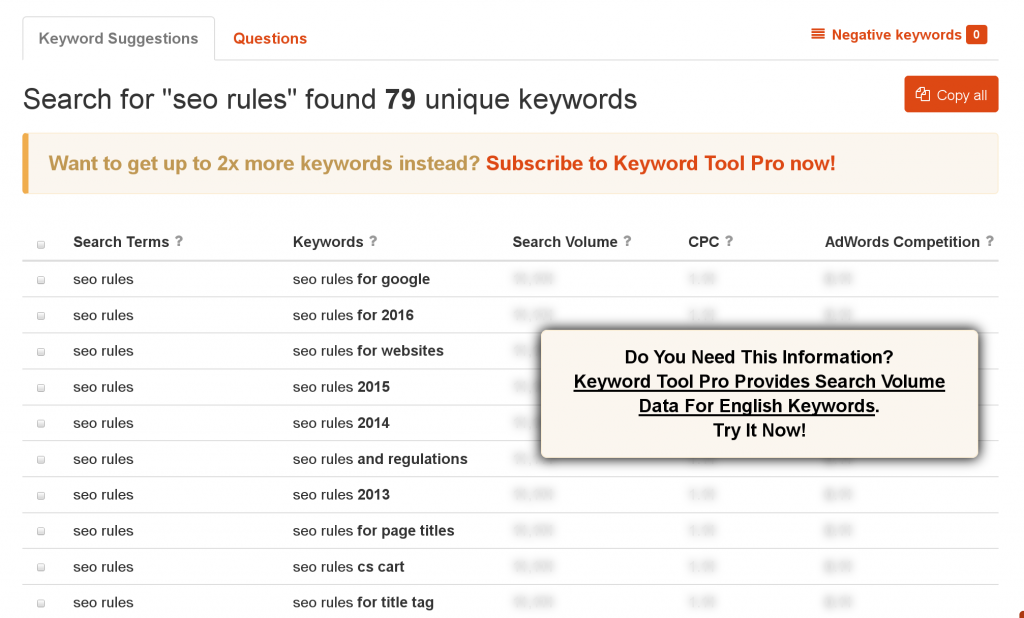For your SEO to be among the best, follow these golden SEO rules for websites. Remember that SEO is a craft but also an art. Get your website to the next level by following these basic SEO rules and guidelines.
SEO Keyword Rules
If you don’t know what you want to rank for, why bother doing SEO? So, do your keyword research. Dig into the tools, get to fully apprehend them but also use the search engines yourself and make the queries yourself. Ask yourself the appropriate questions: what are the niches or long-tail keywords that you could rank for? Where is competition lower? Also, make use of the appropriate SEO-tools such as Google’s Adwords keyword planner and keywordtool.io to find search volumes, used keywords and long tail keywords.
SEO Content Rules
After you’ve done your research, you really want to get serious with matching your on-site content. Which keywords and key-phrases (long tail keywords) you would like to rank for, make they match your body, your (sub)headers, your site-title and your page descriptions. These SEO rules for page-titles and your content are very clear: if your content is not about the stuff that you want to rank for, your efforts are worth nothing. And know this rule by hearth: the more exact matching they are, the better.
Rules of SEO Writing
So you got some content coming and you’ve done your keyword matching, but what about your website visitor? It’s often the most neglected rule: the importance to satisfy your visitor. In short: what reason did your visitor come to visit you? Well, to find what s/he is looking for – obviously. Are you that one website providing this information, and the visitor does not return to Google with the exact same query (basically hitting the back button), then your site’s ranking will boom.
SEO Article Writing Guidelines
Providing value to your website visitors goes a long way. If you have to choose between SEO and keeping your visitors happy, go for the latter. Therefore, don’t follow SEO Rules all the time. When writing articles, you’ve especially got to remember very well that if you will start ranking well for a certain keyword but your content is not engaging enough for visitors, you will very soon see your rankings drop.
SEO Rules for URLS
There are more SEO rules. Such as SEO rules for urls for example. This one means that the closer your url matches the url the keyword that you want to rank for, the higher your will rank for those keywords. It’s an important factor here to make your url’s SEO-friendly, this is also referred to as pretty or nice urls. This basically means that the url should be human-readable with words and as little other special signs as possible. For example, the link to this page is <https://www.seotool.ee/seo-rules> which is readable and pretty.
Google SEO rules and regulations
So you’ve heard that back-links are good for your ranking? Well, you’ve heard right. But all that really matters is how you are being linked to. Our suggestion in this field: take it easy with asking for back-links or creating them yourself.
Most important: do not link-bomb your website; take it one link at a time. Rather see how those go and take your time. For if you do this fast and you do link a lot to you site, be warned about the SEO Rules for Google. In short: if your link-building is seen as a scheme or you’d use other tactics that are not considered clean, your site will stop ranking better, no matter how hard you try.
If this is your case: analyze good and drop any links you own. Even more important: remember that the gateway to good links is unique and feature rich content. As Google words it:
The best way to get other sites to create high-quality, relevant links to yours is to create unique, relevant content that can naturally gain popularity in the Internet community


